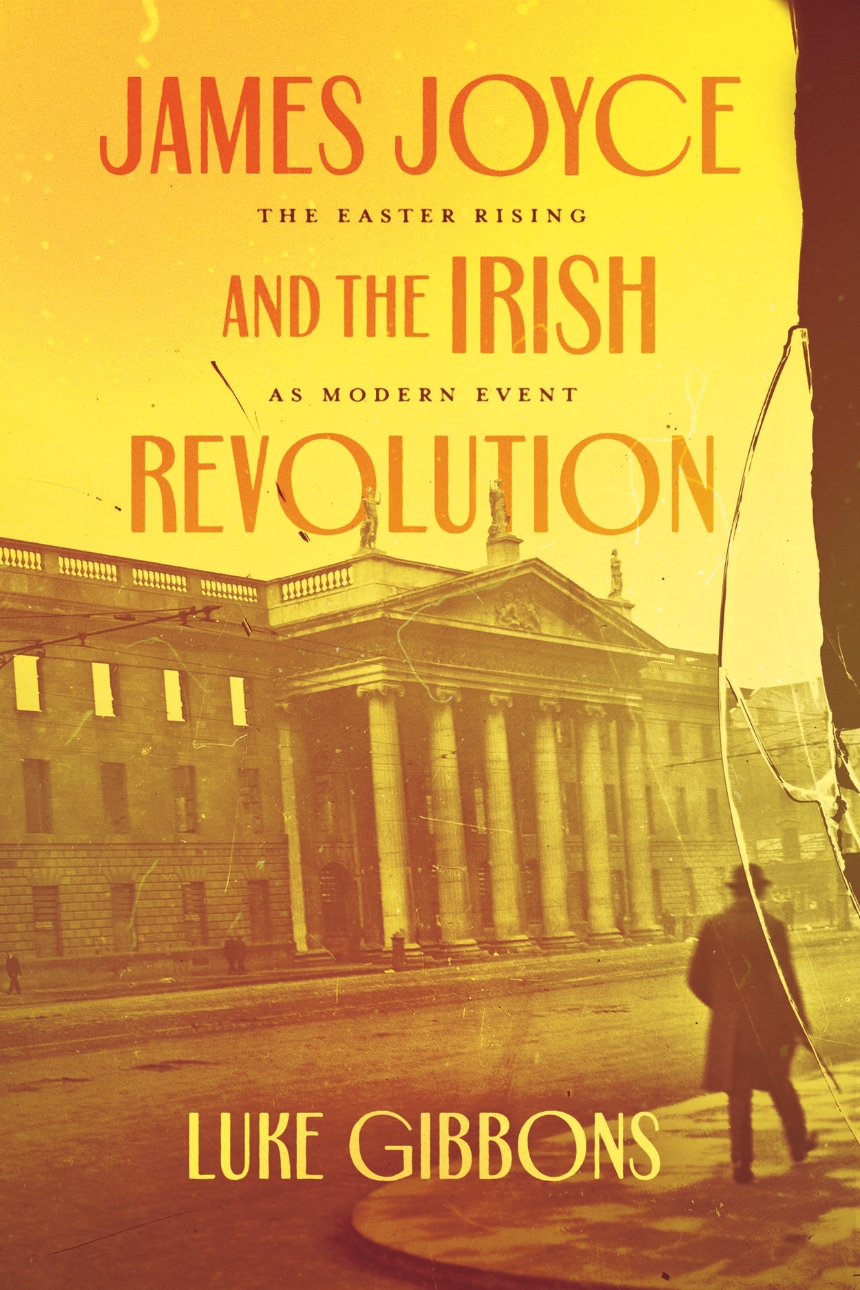James Joyce and the Irish Revolution
The Easter Rising as Modern Event
9780226824475
9780226824468
9780226824482
James Joyce and the Irish Revolution
The Easter Rising as Modern Event
A provocative history of Ulysses and the Easter Rising as harbingers of decolonization.
When revolutionaries seized Dublin during the 1916 Easter Rising, they looked back to unrequited pasts to point the way toward radical futures—transforming the Celtic Twilight into the electric light of modern Dublin in James Joyce’s Ulysses. For Luke Gibbons, the short-lived rebellion converted the Irish renaissance into the beginning of a global decolonial movement. James Joyce and the Irish Revolution maps connections between modernists and radicals, tracing not only Joyce’s projection of Ireland onto the world stage, but also how revolutionary leaders like Ernie O’Malley turned to Ulysses to make sense of their shattered worlds. Coinciding with the centenary of both Ulysses and Irish independence, this book challenges received narratives about the rebellion and the novel that left Ireland changed, changed utterly.
When revolutionaries seized Dublin during the 1916 Easter Rising, they looked back to unrequited pasts to point the way toward radical futures—transforming the Celtic Twilight into the electric light of modern Dublin in James Joyce’s Ulysses. For Luke Gibbons, the short-lived rebellion converted the Irish renaissance into the beginning of a global decolonial movement. James Joyce and the Irish Revolution maps connections between modernists and radicals, tracing not only Joyce’s projection of Ireland onto the world stage, but also how revolutionary leaders like Ernie O’Malley turned to Ulysses to make sense of their shattered worlds. Coinciding with the centenary of both Ulysses and Irish independence, this book challenges received narratives about the rebellion and the novel that left Ireland changed, changed utterly.
296 pages | 10 halftones | 6 x 9 | © 2023
Literature and Literary Criticism: British and Irish Literature
Reviews
Table of Contents
List of Figures
Preface
Abbreviations
Introduction:
James Joyce and the Irish Revolution
1. “Old Haunts”:
Photographic Memory, Motion, and the Republic of Letters
2. Modern Epic and Revolution:
Montage in the Margins
3. “A World That Ran Through Things”:
Ulysses, the Easter Rising, and Spatial Form
4. The Easter Rising as Modern Event:
Media, Technology, and Terror
5. “Paving Over the Abyss”:
Ireland, War, and Literary Modernism
6. “Through the Eyes of Another Race”:
Ulysses, Roger Casement, and the Politics of Humanitarianism
7. Transatlantic “Usable Pasts”:
America, Literary Modernism, and the Irish Revolution
8. On Another Man’s Text:
Ernie O’Malley, Politics, and Irish Modernism
9. Beyond Disillusionment:
Desmond Ryan, Ulysses, and the Irish Revolution
Acknowledgments
Notes
Index
Preface
Abbreviations
Introduction:
James Joyce and the Irish Revolution
1. “Old Haunts”:
Photographic Memory, Motion, and the Republic of Letters
2. Modern Epic and Revolution:
Montage in the Margins
3. “A World That Ran Through Things”:
Ulysses, the Easter Rising, and Spatial Form
4. The Easter Rising as Modern Event:
Media, Technology, and Terror
5. “Paving Over the Abyss”:
Ireland, War, and Literary Modernism
6. “Through the Eyes of Another Race”:
Ulysses, Roger Casement, and the Politics of Humanitarianism
7. Transatlantic “Usable Pasts”:
America, Literary Modernism, and the Irish Revolution
8. On Another Man’s Text:
Ernie O’Malley, Politics, and Irish Modernism
9. Beyond Disillusionment:
Desmond Ryan, Ulysses, and the Irish Revolution
Acknowledgments
Notes
Index
